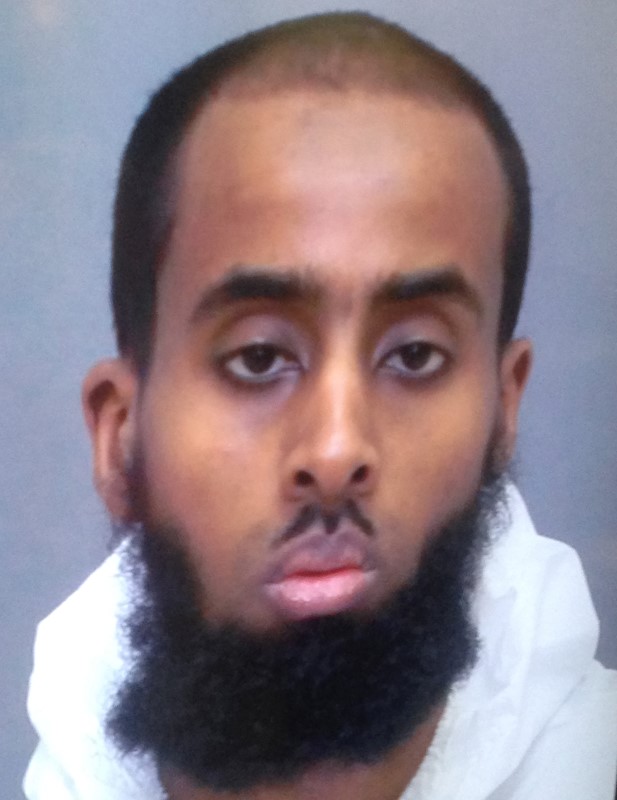By Alastair Sharp and David Ljunggren
TORONTO/OTTAWA (Reuters) - A Canadian man accused of stabbing two soldiers in a Toronto military recruitment office said he had received orders from Allah to kill people, but there is no evidence he was working with others, police said on Tuesday.
The suspect, 27-year-old Ayanie Hassan Ali, faces five charges, including one of attempted murder in connection with Monday's attack, Toronto Police Chief Mark Saunders told reporters.
Ali, who was born in Montreal and had lived in Toronto since 2011, was due to appear in a court later in the day.
Saunders said Ali walked into the office at 2:45 p.m. EDT(1845 GMT) and stabbed a soldier with a large knife. Another soldier received a stab wound during a struggle to restrain Ali. Neither of the soldiers was badly injured.
"While at the scene the accused stated that 'Allah told me to do this, Allah told me to come here and kill people'," Saunders said.
Security officials have been on alert for lone attacks since October 2014, when a gunman attacked Canada's Parliament after killing a soldier at a nearby war memorial. That attack by a Muslim convert came two days after another convert to Islam ran down two soldiers in the province of Quebec, killing one.
"To date there is nothing to indicate the accused is working with anyone or in concert with any organisation," Saunders said.
A Royal Canadian Mounted Police spokesman said the force did not believe there was any threat to the public.
Toronto police will work with the RCMP and other agencies to fully investigate the incident.
"It's a slow-moving process. It's going to take quite a bit of time," Saunders said.
The Canadian Security Intelligence Service, a spy agency that tracks suspects abroad, said it could not comment.
In a tweet, Prime Minister Justin Trudeau said Canadians "will not be intimidated by terror and hate".
The Toronto recruitment centre where the attack took place was open on Tuesday. Security at Canadian military facilities remained at the same level as before the attack, said Jordan Owens, a spokeswoman for Defence Minister Harjit Sajjan.
"This may evolve as the investigation proceeds," Owens said in an email.

Canadian security officials have previously said they are concerned about the risk posed by people who become self-radicalised - a term used to describe those who join extremist causes after learning about them on the Internet.